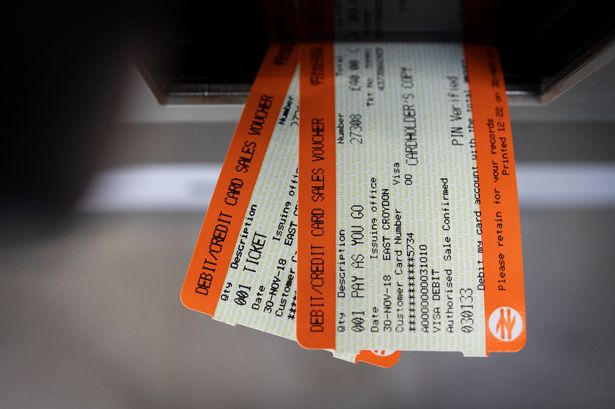Regulated rail fares in England will rise by up to 5.9% from next March, the Department for Transport has announced. The rise is being capped at a level well below inflation, "to help reduce the impact on passengers", the transport secretary said.
"This is a fair balance between the passengers who use our trains and the taxpayers who help pay for them," Mark Harper said. Fares will officially rise on 5 March 2023.
Before the Covid pandemic, fares were raised in January each year, based on the retail prices index (RPI) measure of inflation from the previous July. The normal formula is RPI plus 1%.
However, the government said that rail fare increases for 2023 would be capped at 5.9%, well below July's RPI figure of 12.3%. Like last year, the government is also freezing fares for January and February, so that passengers have more time to buy tickets at the existing prices.
"It’s the biggest ever government intervention in rail fares", Mr Harper described the move as. "It has been a difficult year and the impact of inflation is being felt across the UK economy.
“We do not want to add to the problem," he said. However, Labour criticised the 5.9% rise.
Shadow transport secretary Louise Haigh said: "This savage fare hike will be a sick joke for millions reliant on crumbling services. People up and down this country are paying the price for 12 years of Tory failure."
The independent watchdog Transport Focus warned that more needed to be done to improve the experience of passengers on the railways.
"After months of unreliable services and strike disruption, it's clear that too many passengers are not getting a value for money service," said its director, David Sidebottom. "Capping fares below inflation and the delay until March is welcome and will go some way to easing the pain, but the need for reform of fares and ticketing in the longer-term must not be forgotten."
Regulated fares cover about 45% of fares, including season tickets on most commuter journeys, some off-peak return tickets on long distance journeys and anytime tickets around major cities. The pandemic saw a steep drop in the number of train passengers, as more people worked from home, and numbers have remained well below pre-Covid levels.
Rail passengers have also faced disruption due to a wave of strikes, with further industrial action planned over Christmas and in early January. Industrial action is being taken in a dispute over pay, job security and working conditions.










